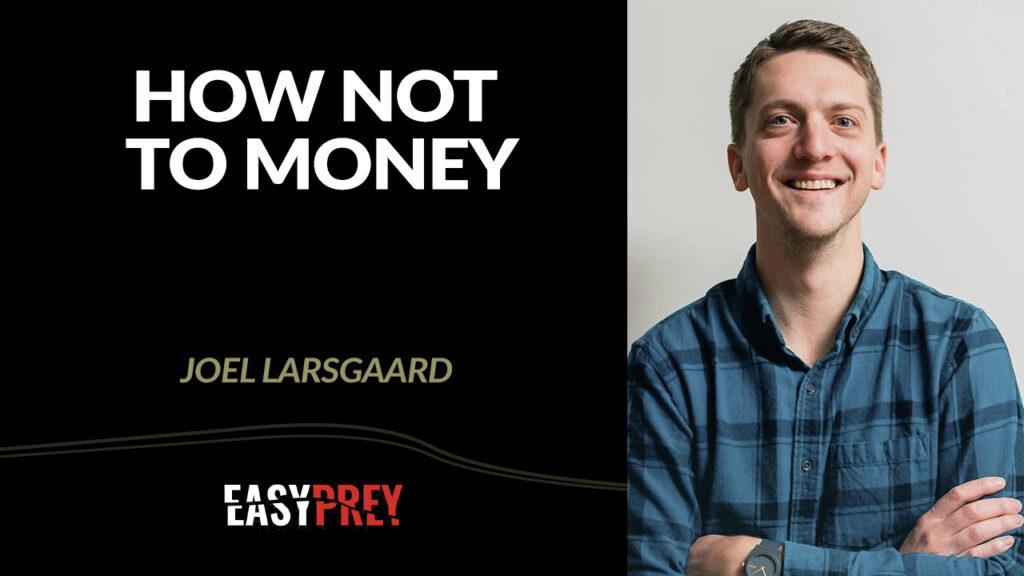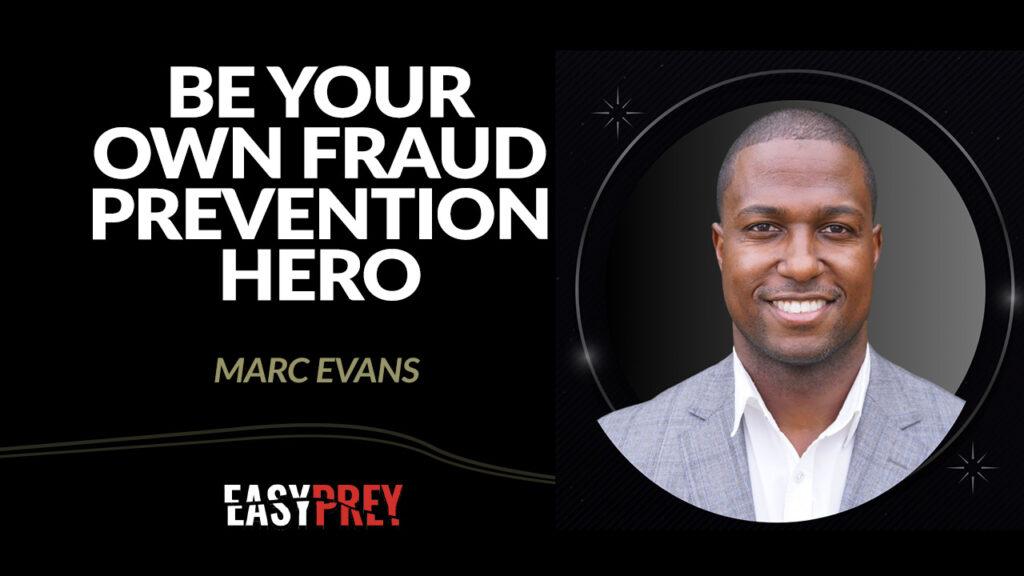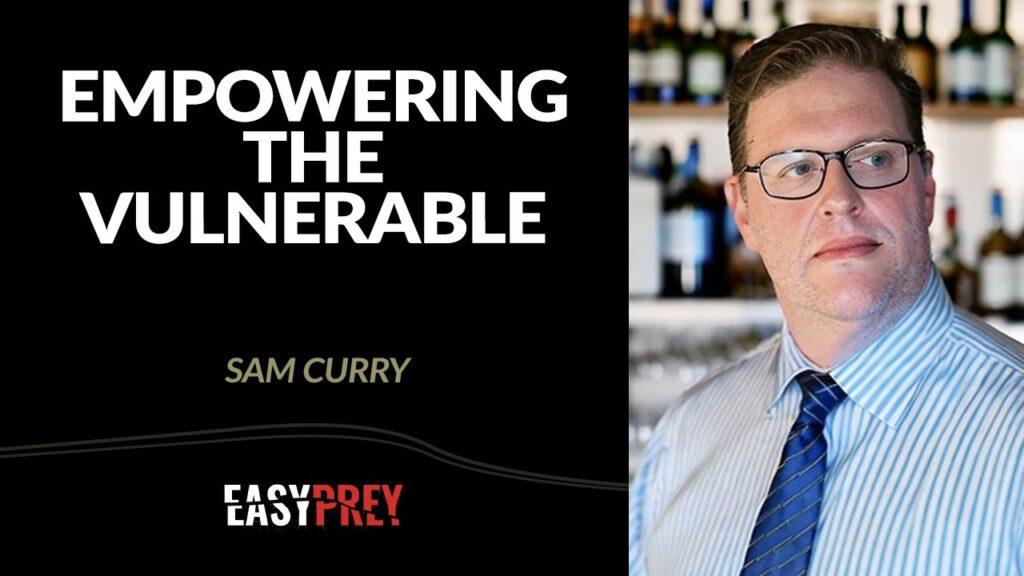Personal Finance Tips to Manage Your Money and Avoid Mistakes

No matter who you are or how much money you make, financial literacy is important. Knowing how to manage your money properly can help you prioritize what you love and avoid costly financial mistakes. Whether you feel like you already know what you’re doing financially or you’ve just started the journey to do better with money, these personal finance tips can help.
See How Not to Money with Joel Larsgaard for a complete transcript of the Easy Prey podcast episode.
Joel Larsgaard co-hosts the podcast and radio show How to Money, which is about helping people learn how to handle their personal finances. He’s been obsessed with personal finance for over fifteen years and wants to help people understand the world of money and the impact money decisions make on everyday life. Most people don’t learn about personal finance in school. Bad money decisions often have nothing to do with intelligence – people just lack the information they need to make better ones. He wants to change that.
It’s not an IQ thing. It’s truly just an information thing. So many people are missing the information they need [about] money.
Joel Larsgaard
A Personal Finance Journey
Joel became interested in personal finance by watching his parents. They didn’t handle money badly, but when his dad lost his job, it started a domino effect of financial issues. His parents are great people who he still admires, but money was a constant issue. They filed for bankruptcy when Joel was a preteen and he remembers thinking that he didn’t necessarily want to be rich, but he didn’t want to have money problems.
As an adult, Joel ended up producing a radio show for Clark Howard, a consumer advocate money guy who was syndicated on radio stations across the country. It was already a topic he was interested in, and now Joel was immersed. Clark was probably more extreme about savings than most people. He’d walk long distances to avoid paying for parking, even in the winter in Wisconsin. Joel appreciated some of his cheap ways, but not all of them.
That’s one of the things he tries to leave open on his own show. Everybody has different goals, and not everyone wants to be incredibly frugal. Most people don’t want to save money at all costs. Almost everybody would rather same money on things they don’t care about so they can put money towards the things they do. And what they do care about differ. Some people want to retire at thirty. Others want to spend as little as possible so they can work as little as possible. There has to be room for different goals in personal finance.
The Biggest Financial Mistakes People Make
Money is a tool that touches every aspect of our lives. Unfortunately, many people don’t know how to use it effectively. It’s like a chainsaw. In the hands of someone skilled and experienced, it can cut down a tree and get some good work done. But if it’s being wielded by someone who lacks the strength, skill, or experience to handle it properly, it can cause major injuries.
The biggest mistake Joel sees across the board is just not saving enough money. It’s one of the most common personal finance tips you’ll hear. But not saving enough, or not saving anything at all, will really hurt you in the long term. Beyond that, though, Joel has some additional personal finance tips to reduce the other big mistakes he sees.
Not Tracking Expenses
Many people literally just do not know where their money is going. It’s really hard to make changes if you don’t know where you’re starting from. People don’t like the word “budget,” and Joel doesn’t talk about it as often as some other personal finance people. But tracking your money and knowing where it’s going is the first step to plugging leaks.
Surveys have been done on how much people think they’re spending in certain categories. The average person thinks they spend $120 a month in subscriptions. But the reality is more than double that. There’s a distance between the estimate and the reality that needs to be cleared up. If you don’t start with a clear picture of where your finances are right now, it’s nearly impossible to make effective changes. Tracking where your money goes will show you where change can happen.
Often when people hear about budgets, they think, Oh, Joel doesn’t want me to eat out ever again. But if that’s what you’re into, that’s great! Budgeting is just about going into your choices with eyes wide open. When you track your expenses and budget, you can make decisions based on information.
Overusing Credit Cards
Many personal finance tips talk about credit cards and credit card debt. But it’s still one of the biggest mistakes Joel sees. Additionally, buy-now-pay-later (BNPL) services like Affirm and Klarna have become common, and many people use those as well as credit cards. About half of people have a credit balance of around $10,000. And 10% of people pay the minimum on their cards. With interest, that can mean they’re in debt for decades. Having a few thousand dollars on a credit card may seem small, but interest adds up fast.

The first step is a plan. Figure out all your debts – where they are, how much you owe, and the interest rates. Then look at the gaps between your non-negotiable bills and what you earn. How much extra can you throw towards your debt? Next, prioritize. There are different methods to do it. Joel recommends the site undebt.it, which can help you come up with a payoff plan. Put that plan where you’ll see it.
Joel has never seen anyone pay off a huge amount of debt and not be thrilled. It’s like running a half-marathon. It sounds painful in the beginning, but when you’re able to accomplish it, it feels amazing. The bottom line is that you’ll have to deal with it at some point. You could continue putting purchases on your credit card and using BNPLs, but it just makes the hole bigger. The time to get out of the hole can be twice as long or longer than it took to get in. If you take the easier route now, there’s more pain later.
You can do the hard thing down or you can do the hard thing later. Doing the hard thing now sets you up for success.
Joel Larsgaard
Not Looking for Discounts
There are a lot of really easy ways to save money here and there. Joel loves personal finance tips that include low-hanging fruit to save money. One of those is switching your phone provider. Most of the big, well-known phone service brands are pretty expensive. Switching to one of the smaller discount options can save you a lot. And since they often run on bigger companies’ networks, you’re not getting inferior service, either.
There’s all sorts of low-hanging fruit ways to save that most people don’t think about.
Joel Larsgaard
Insurance is another place where you can shop around and look for discounts. The difference between different companies can be significant. There are also insurance agents that aren’t affiliate with particular companies who can do the shopping for you. Joel recommends trustedchoice.com or Policygenius for these. When shopping around, though, it’s wise to look at consumer reports and make sure you’re not getting a good deal because the company isn’t going to back you up when you file a claim.
You can also ask insurance agents what other discounts they offer. It’s amazing how many are available if you ask. Joel, for instance, took a defensive driving course. He didn’t even have to go anywhere – despite not being an AARP member, he was able to take it on the AARP website for about $30. It’s saved him over a hundred dollars a year on car insurance. Spending thirty minutes asking about discounts could save you a few hundred dollars or more.
The amount of money you can save with car and home insurance could be … not insignificant.
Joel Larsgaard
Making Mistakes with Subscription Services
At this point, many of us are frustrated with subscription services. It’s very annoying to have to have different services to watch one or two things on each. Especially with ad-supported plans, having all of these services costs about as much as cable used to, but without live sports.
Many personal finance tips talk about getting rid of streaming services. Joel thinks that if you’re a frequent Netflix or Hulu watcher, it’s okay to sign up for those and never cancel. But most of the time, loyalty is going to cost you. If you only want to watch a few things, sign up when there’s a good deal or promotion. Make sure to watch what you want to watch during the promotional period, then cancel it.
Not paying attention to the ends of promo deals and free trials is another big mistake with subscription services. Many people forget to cancel and get charged for a service they’re not using. And when the investment is only $10 or $15 a month, people are pretty price insensitive. But if you let a $15 subscription go for a whole year, you’ve spent $180. It can be a good deal if you’re actually using the service. But if you’re not using it, you’ve spent $180 for nothing.
It’s just not paying attention, that’s what’s costing people money.
Joel Larsgaard
Why People Don’t Like Budgeting
Anybody giving you personal finance tips is probably going to talk about budgeting at some point. Joel is no exception. But he understands the reaction of not wanting to do it. That’s actually his reaction, too. He’s not a detail-oriented person, and he hates spreadsheets. If it wasn’t for online budgeting software, he’d have a really hard time of it.
A lot of people assume that a budget is restrictive, like a diet. They don’t want to do it because they don’t want to be restricted and assume it’s going to suck. But for budgets, the opposite is actually true. Say one thing you want to do is a vacation to Hawaii that will cost about $10,000. Chances are you’re not going to be able to spend that much out of the blue. If you’re not proactive about funneling money towards that, you’re not going to be able to go. A budget lets you see where you can cut back to get extra money for that goal. It’s not a restriction, just a prioritization. When you choose not to go out to dinner, you’re not thinking about how much it sucks – you’re thinking about how great Hawaii is going to be.
A lot of people assume that a budget is similar to a diet – it’s restrictive. But I think the opposite is actually true.
Joel Larsgaard
It’s a common misconception that a budget means you’re never going to be able to enjoy anything again. But that’s just not true. It helps you figure out what brings you the most joy, spend money on those, and save money in areas that you don’t care about as much. Budgeting isn’t about not spending money, it’s about freeing up money to spend on the things you enjoy.
Awareness is the First Step
Not tracking expenses is one of the biggest mistakes Joel sees for a reason. When you’re dieting, a common first step isn’t to eat less or exercise more, but just document what you’re already doing. Awareness helps drive that change. Once you write it down, you’re not dealing with assumptions or guesses anymore. You’re dealing with reality. And you can’t make effective changes unless you’re aware of reality.
One of Joel’s friends chose an extremely old-school, but very effective, method. She kept a ledger on her kitchen island and wrote down in that ledger everything that she spent. That’s a little extreme for most people. But Joel encourages people to try it for thirty days to help it register with your brain. There’s something powerful about writing it down. Spending is easy, and it’s easy to forget what you spent. Writing it down is the best beginner personal finance tip Joel has.

When you write it down, you can also check in to see if you’re getting the value you want out of these things. At the end of the day, whether or not it’s valuable to you is what matters. If you don’t remember ordering that Amazon package, was it worth the money? On the other hand, if you purchase something and get a lot of value out of it, that’s worthwhile. Some people might say it’s ridiculous to spend a lot of money on craft beer, but that’s something Joel gets a lot of value out of. If mountain biking is your think, maybe $2,500 on equipment has a lot of value for you. If so, that’s great. Spend your money there and dial back on other things. It’s all about funding the things that matter to you.
Joel’s Advice for Banking
People get used to doing business with the bank they’ve always done business with, or the big bank on every street corner or ad. But with interest rates going up in recent years, that’s costing you money. Big banks don’t care about anyone whose net worth doesn’t start with a B. They’re going to pay you next to nothing on your savings. The best banks – including Joel’s favorite, online banks – offer an actually reasonable rate of return on savings.
Everybody hates inflation. The only way to keep up is to keep growing your money. That means investing and making sure your liquid savings is in a high-yield savings account where you’ll make a reasonable rate of return. If your money is still in one of those big, well-known banks earning a pittance, move it.
CIT, Discover, and Ally are some of Joel’s favorite online banks. They have highly competitive online savings rates, plus great customer service and features. Capital One is another good one. They’ve come under fire from the government lately for having two different types of savings accounts and not being clear on the differences. But if you have the better account, they’re still great to do business with and have great products. They’re especially great if you have kids and want them to have accounts.
Good online banks are FDIC insured and offer competitive rates. If you’ve never heard of them, that’s okay. You can go to the FDIC website and check that they’re legitimate. Joel’s personal finance tips always include putting your money with one of these banks.
Use Caution with Neobanks
A neobank is a fintech company with features similar to a bank. They have cool websites, fun branding, and interesting features. But at the end of the day, many personal finance tips come down to looking at the fine print. What’s going on? If they’re offering an 8% return on your savings, how can they do that? Do they have some cryptocurrency affiliation? Some of the better neobanks have actual banks behind them, but when there’s an issue between the two, customers get caught in the crossfire. People can get screwed, lose all their money, or lose access to their money when something goes wrong with a neobank.
That’s why Joel recommends people do business directly with online banks that are FDIC insured, not neobanks. You can tell the difference by looking up the bank on fdic.gov. You can also find it in the bank’s fine print. If it’s run on the bank end with a different bank, you may have FDIC insurance through that bank, but it’s a gray area and makes it much more complicated.
Neobanks are great at looking fun, sexy, and interesting. They have great websites and great marketing. They’re especially appealing to Gen Z. But there are a lot of risks and dangers that aren’t often talked about. In the worst-case scenario, you lose every penny you put into a neobank. It’s safer to go with one of the online banks Joel recommended previously. They may not be as sexy, but they have great products, they’re insured, they’ve gotten rid of many of the fees big banks still charge, and they’re mostly consumer-friendly. Overall, they’re a better choice.
Personal Finance Tips for Investing
At the end of the day, simplicity is best when it comes to investing. If you look at stock market returns and how the average investor fares, the ones who invest in simple products, like a low-cost index fund from a low-cost brokerage like Fidelity, Schwab, or Vanguard, are the ones who come out ahead. They build wealth without thinking about it. Americans want to be exceptional – we have the idea that we can beat the average rate of return. But even professionals have a hard time doing that. Building wealth slowly and steadily is the best way to do it. 401(k)s, Roth IRAs, and HSAs are boring but effective investment vehicles.
Doing the slow, steady, boring stuff is ultimately what’s going to get you where you want to go.
Joel Larsgaard
There are sexier-sounding alternative investments out there. Whisky, wine, art, farmland, crypto, meme coins, and more. But the cooler an alternative investment sounds, the more the people running the investment are getting paid. The cool thing about index funds is that you own a very small part of companies we do business with every day. You get that little bit of ownership without putting yourself too much at risk.
The sexier the investment sounds, the more somebody who’s running the investment is getting paid.
Joel Larsgaard
It’s a lot of work to find and evaluate investments. Some people love doing that. But most of us have a day job, kids, and/or hobbies, and the idea of looking at prospectus reports to determine if an investment is good sounds terrible. And many alternative investments are rife with scams. Too many people are investing to try to get rich quick, when really investment is about growing your money over time.
Anyone can Invest
Sometimes people get caught in these investment scams because they think it’s their only option to invest. You can still invest with traditional vehicles even if you’re not making a ton of money. Gone are the days when you needed $50,000 to open a brokerage account. Now, there’s almost no barriers. You can hop on an app or open a brokerage account, sometimes with as little as $20, and start buying index funds.
There used to be high barriers to investing, and now there are no barriers.
Joel Larsgaard
Even if you’re not rich, there are a lot of options for building a reasonable amount of wealth to achieve your goals and dreams. Even if you start small, Joel’s big investing personal finance tip is just to do it. Starting can go a long way. Something in your personal narrative changes – you start thinking of yourself as an investor. At first, it feels small, but avalanches start small. You can watch it grow. You’re probably not going to be a billionaire, but you can get six or seven figures if you’re consistent over the long haul.
You can find Joel Larsgaard and the How to Money podcast wherever you listen to podcasts. There are a lot of additional resources on howtomoney.com
Related Articles
- All
- Easy Prey Podcast
- General Topics
- Home Computing
- IP Addresses
- Networking Basics: Learn How Networks Work
- Online Privacy
- Online Safety
- Uncategorized
The Ultimate VPN Resource: Everything You Need to Know
VPNs are an essential resource for keeping your data secure and improving your privacy online. However, there…
[Read More]Fraud Prevention Advice for Everyone
Being a victim of fraud is, unfortunately, common. And it’s often underreported because victims are ashamed and…
[Read More]Best VPNs for Pokémon Go in 2024: Unlock New Regions
Pokémon Go enthusiasts come in every shape and size, from every walk of life, and from all…
[Read More]Is There a Warrant for Your Arrest? It’s More Likely You’re a Target of This Scam
If, like most people, you’re a law-abiding citizen, getting a call from law enforcement saying you’re in…
[Read More]The Hacker Mindset is a Benefit for Cybersecurity
When most people think of cybersecurity, they think of trying to protect digital assets from cybercriminals and…
[Read More]Scammers Want You to Buy Gold Bars – Here’s Why
Someone has just stolen your box full of gold, which contained your entire fortune. It sounds liek…
[Read More]





